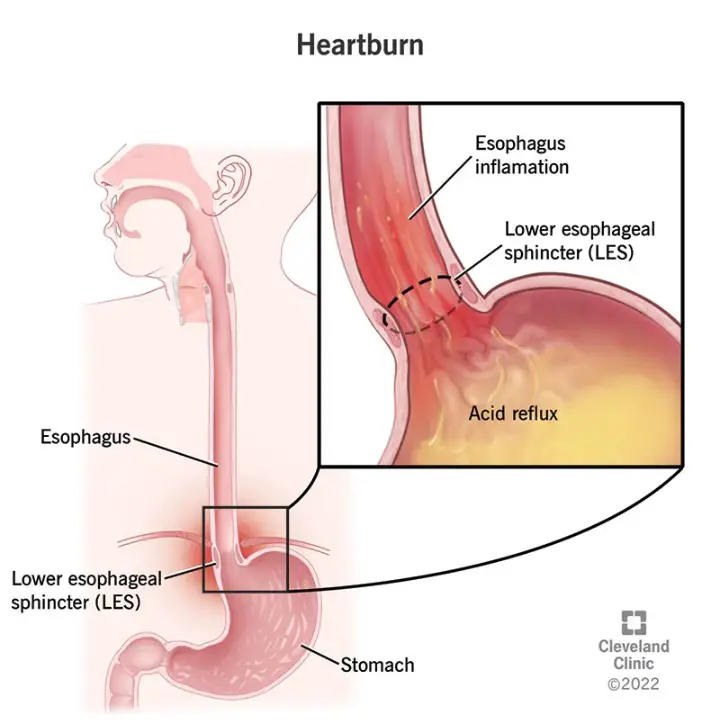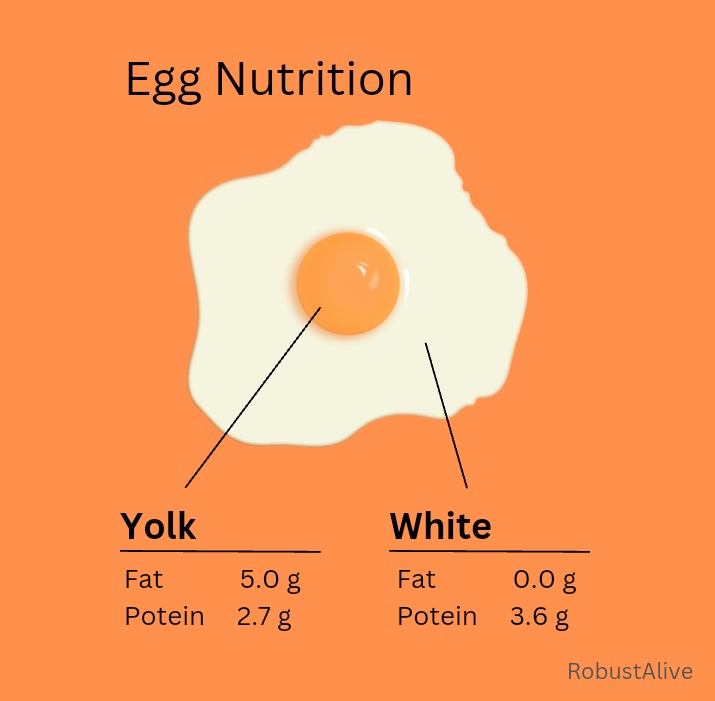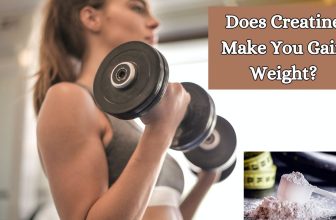Do Eggs Cause Heartburn? Exploring The Causes and Prevent It

If you suffer from heartburn, you might be wondering whether eggs are a safe food to eat.
So, do eggs cause heartburn?
Yes, eggs may cause heartburn if you have a sensitive stomach. Eggs are slightly acidic but high in protein and fat, which leads to more gastric acid in your stomach, ultimately causing heartburn. In this case, eat egg whites only as they are low in fat and slightly alkaline which can help reduce the risk of heartburn.
In this article, we will explore the relationship between eggs and heartburn and provide tips on minimizing heartburn from eating eggs. Keep reading!
Do Eggs Cause Heartburn?
Eggs provide you with essential nutrients like protein, vitamins, and minerals. That’s why eggs are a healthy option in your diet, and they can be cooked in various ways, such as boiling, scrambling, or frying. However, eggs can trigger heartburn in many people, especially those with sensitive stomachs. So let’s discuss how eggs cause heartburn like we did if avocado oil causes acid reflux.
What is Heartburn?
Heartburn is when you experience a burning feeling in the middle of your chest. It is a common symptom of acid reflux and GERD (gastroesophageal reflux disease).
Acid reflux happens when your stomach acid goes up toward the esophagus, the tube connecting your stomach to your mouth.
When this acid reflux becomes more frequent and severe, It causes inflammation and damage over time, known as GERD. But only heartburn doesn’t indicate GERD. Other symptoms include regurgitation, chest pain, difficulty swallowing, and a persistent cough.

Consuming acidic and high in fat food may trigger heartburn which is a sign of acid reflux or GERD. So, are eggs acidic or basic, and how do they cause heartburn? Find out in the following sections.
Are Eggs Acidic or Basic?
Eggs are slightly acidic with a pH range of 5.6-6, although the pH of eggs varies in egg white and yolk. The egg yolk has a neutral pH of 7 while the egg whites are more alkaline, with a range of 7-9.
Here is a table showing the pH range of eggs.
| Part of Egg | pH Level |
| Egg Yolk | 7 (neutral) |
| Egg White | 7-9 (slightly alkaline) |
| Whole Egg | 5.6-6 (mildly acidic) |
| Hard Boiled Egg | 6-6.5 (slightly acidic) |
In addition, eggs could be acidic or alkaline according to different conditions. For example, if you hard boil eggs, they become more acidic, with a pH range of 6-6.5. On the other hand, raw eggs become more alkaline as they age.
What Causes Egg-related Heartburn?
As eggs are low in acidity, why could you get heartburn after consuming eggs? Well, eggs’ high fat and protein content are the reason, especially when your stomach is sensitive.
One large egg has 6.3 g of protein and 5 grams of fat. The egg yolk has 5 g of fat and 2.7 g of protein. On the other hand, the egg white has 0 g of fat and 3.6 g of protein.

So, eggs are rich in fat and protein, which are hard to process. That’s why eggs remain in your stomach for longer, producing more gastric acid, which increases the possibility of acid reflux and GERD.
In addition, many people enjoy scrambled or fried eggs, which contain higher fat and calories and are more likely to cause heartburn and weight gain.
A few specialists say that egg yolks are bound to set off acid reflux, as they’re higher in fat than egg whites. Egg whites are a decent wellspring of protein. Their low acidic quality makes them a proper choice against indigestion.
Is Boiled Egg Bad for Acid Reflux?
Boiled eggs are slightly acidic (pH 6-6.5), which is not bad for acid reflux. But some people may have an allergy to eggs which can cause acid reflux as a side effect. In addition, If you have severe gastric issues and or acid reflux after consuming boiled eggs, you should only eat egg whites and avoid the yolks.
How to Prevent Heartburn From Eggs?
Heartburn from eggs can be prevented by adjusting your diet and lifestyle. Here are some tips:
- Eat smaller portions of eggs throughout the day.
- Avoid spices in your eggs, as they can trigger heartburn.
- Avoid cooking eggs with oils and fats like scrambled eggs or fried eggs. Also, don’t add high-fat toppings or sides with your eggs.
- Consume egg whites only, avoiding the egg yolk, as egg whites have almost zero fat.
- Take time while eating because eating too fast can cause indigestion and heartburn. Take your time and chew your food correctly to prevent heartburn.
- Avoid lying down just after eating and try to eat before 3-4 hours of going to bed.
- Quit smoking and limiting your alcohol intake will reduce your risk of heartburn and other health problems as well.
Remember, if you’re experiencing frequent or severe heartburn, it could be more issues like GERD. So speak to a healthcare professional in this case.
Frequently Asked Questions (FAQs)
Are Potatoes Good For Acid Reflux?
Potatoes are good for acid if you eat them boiled or baked without high-fat toppings. However, avoid eating french fries and potato chips because they have a lot of fat, making your stomach uncomfortable.
What Drinks Help Acid Reflux Go Away?
Certain drinks like ginger tea, particular fruit and vegetable juices, and plant-based milk can help acid reflux go away. However, it would help if you avoided drinks like citrus juices, carbonated beverages, and alcohol. Drinking water also helps with acid reflux as it can reduce the strength of stomach acid.
What Should I Eat for Heartburn During Pregnancy?
Safe food options to soothe heartburn during pregnancy include yogurt, milk with honey, almonds, pineapple, papaya, ginger, and sugar-free gum. Also, you can take medication approved by your doctor.
Conclusion
To conclude, eggs cause heartburn if you have sensitive stomachs due to their high fat and protein content. To avoid heartburn, eat only egg whites and avoid spicy egg dishes.
If you have frequent or severe heartburn, consult a doctor to check for more serious underlying health issues like GERD. Also, try eating smaller meals and avoid lying down after eating to reduce heartburn. Stay healthy!





